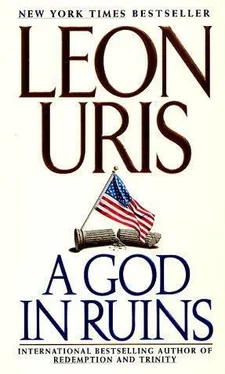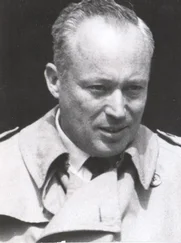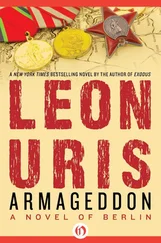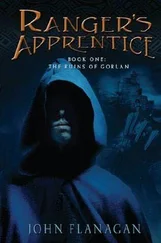Anyone can pinpoint the time and place when the tide turned against me.
It was the Six Shooter Canyon Massacre.
Immediately following the disaster, my rating bottomed out, then climbed back up as I traveled the country ceaselessly and was able to placate some of the national trauma. I was successful in divorcing myself from direct responsibility for the massacre, in the eyes of most of the people.
During those hard days, my vice president, former Texas senator Matt Hope, held in line that massive group of voters of the Christian conservatives. Taking on Hope as VP. meant I did not have to personally deal with those pompous preacher men guarding the kingdom. Vice President Hope quickly convinced the Christian constituency they had no place else to go. Certainly, Governor Quinn Patrick O’Connell, a Catholic liberal, represented an unthinkable alternative.
It is election day minus seven. Perhaps I’m grasping, but I sense that the sudden dry-up of news out of O’Connell’s headquarters means something. Although we are separated by two thousand miles, I sense a tension and quandary.
I had given O’Connell a hell of a run. Whatever hope I had was squashed at our “great debate” at the New York City Public Library. During an intermission at the end of the first hour, I was informed of treachery that would send me packing out of office.
Well, Thornton Tomtree, how did you get here? How did I get enmeshed in a tragedy that was not of my making? Why have I had to live to the great betrayal?
Even back in the 1950s, I never wanted to be much more than a junkyard dog, like my daddy, Henry Tomtree, who knew every scrap of metal, every bale of newspaper, and every dead battery and doorknob in his yard, and who could carry on business without calculator or ledger because he kept everything in his head. Henry Tomtree was the greatest junkyard dog the Northeast states ever had.
How old are your first memories? Vaguely, around kindergarten or first grade. I loved the yard so, I didn’t have many friends on the outside. Suddenly, I was in big classrooms with them, boys and girls. One day I was standing before our long hall mirror in our hallway. I remember finding it hard to look at myself. I was different from the other kids. Even looking in the mirror I wanted to defend myself from outside inspections of me.
In my early grades I had a terrible time in school. Studies were fine and simple. It was lunch period, the cafeteria, and the playground where I was not spared perpetual taunting.
And as they taunted, I ran to my safe place in a corner of the junkyard. It was here that I began to build my empire. I studied my daddy’s ways. I fiddled endlessly with physics problems. I became able to play both sides of a chess game in my mind.
If you can’t crack a problem through logic, you make an end run. I developed an auxiliary to standard mathematics, my own methods. I slipped in and out of quantum math.
All this I had in me, but I could barely hold up my hand in class or engage in conversation or, God forbid, approach a girl. I was interesting, but nobody knew the things I was interested in.
I was storing so much data and so many formulae that I had to have a place to hold it all. So I created a fantasy place. It was called Bulldog City, although it was really a nation, in an isolated place with mountains encircling it and mountaintop guard posts and missile emplacements. I invented a super laser to knock out incoming missiles and spy planes. I could even hit a satellite when it spied on Bulldog City. Boy, nothing could get in and out, and I commanded the armed forces and quarter backed the football team and sang concerts and all the stuff I couldn’t do.
My daddy’s partner was a Negro named Moses Jefferson. Moses was a spiritual gentleman who did odd jobs until he proved his true worth. Moses entered a secret bid to demolish the old Williams Hotel. His bid was lower than Henry Tomtree’s.
Moses didn’t have the money for a crew and equipment, but subcontracted everything and put them on a profit-sharing plan. He ended up with an enormous cache of sinks, pipes, toilets, bricks, fine old turn-of-the-century urinals, chandeliers, railings, and everything a petit grand hotel could yield.
Henry Tomtree had been skinned, but he got the message. Moses Jefferson possessed the keen mind of a junk dealer. As messy as the yard might appear, a good dealer had it organized in his head, down to a button. Hell, better to have Moses in as a partner than as a competitor.
Sorry, that’s my phone. “Yes?”
“We’ve hit up everybody, Mr. President, but we can’t find out what the hell’s going on with O’Connell.”
Tomtree mumbled “Shit” under his breath. “It’s two A.M. here, what’s that mean in, what the hell you call it, Mountain Time?”
“I think I’d want to keep some people here to cover the monitors and phones and the rest of us pack it in,” Darnell said. “The instant O’Connell calls for a news conference, we assemble top staff, watch the conference together, and immediately whack out a counterattack.”
“No inkling of what the Democrats are up to?”
“None.”
“Right,” the President said, disappointed. “Darnell, bunk in tonight here at the White House. I, uh, need you to be close by.”
PAW TUCKET RHODE ISLAND
LATE 1950s TO LATE 1960s
Henry Tomtree’s junkyard occupied a full block in a semi derelict industrial zone. Long past its heyday. Stacks of crushed autos and chopped-up tires mingled with the new pop harvests of soft drink and beer bottles, broken glass bins, plastic, and the junk dealer’s mainstay—baled-up old newspapers and magazines.
“A cacophony of smells,” Henry would note, breathing in the fumes from the fuel trucks, smoke from a nearby landfill, and oil from the grease pits. Every night the garbage truck fleet parked in a nearby lot, the sky maddened with the mean wings and frenzied yowls of seagulls.
When Henry discovered Mo’s true worth, the two entered a life-long relationship which was to be carried on by their sons, Thornton Tomtree and Darnell Jefferson.
Moses and his family lived in Pawtucket, a very decent lower-middle-class city. It had a little less of everything, except for the Pawtucket Red Sox.
Henry Tomtree lived a few blocks from Mo in Providence, which was considered to be middle-middle. Providence was a good-sized little city, lovely to look at as it rippled up and down the hills to the sea.
Houses seemed newly painted, and the town was filled with educational facilities and boasted a strong cultural life, so as to be a kitchen community for both New York and Boston.
Twenty miles down the bay preened Newport, which ranged from tourist all the way to upper-upper. Setting aside the beach town aspects, and other summer garnishments, Newport was a world-class port of yacht racing. Here, the main thoroughfare was named America’s Cup Way after the trophy won by Yankee sailors for over a century.
Moses Jefferson’s American ancestry went back further than Henry’s and even further than many of the mansion owners of Newport.
Mo’s family originally came from a Portuguese colony in the Cape Verde Islands off the west coast of Africa. They were never completely slaves but made their livelihood servicing the hundreds of ships plying the Atlantic routes. Mo’s wife, Ruby, continued to clean houses for a few years after he began to work for Tomtree. Oftentimes, she had to leave little Darnell with his daddy at the yard.
Thornton Tomtree was a shy lad. Hanging out at the yard was his main form of recreation. As Darnell grew to waddle around on his own, Henry was in an endless checkers war with Mo. No one knows the exact number of boards they went through until Ruby gave her husband a wooden one for his birthday.
Читать дальше












